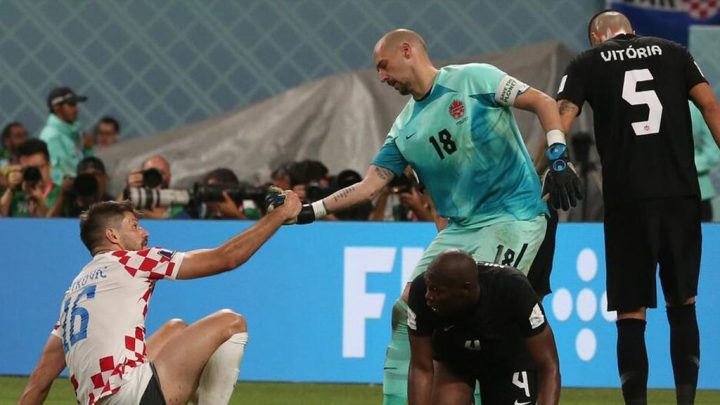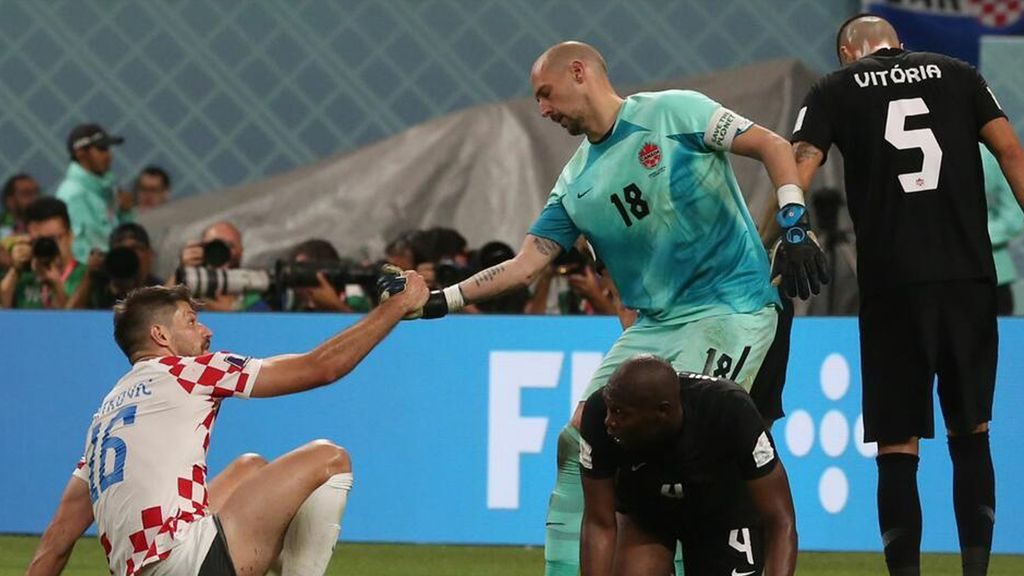

Prior to the start of the 2022 World Cup, the Federation Internationale de Football Association (FIFA) president Gianni Infantino urged teams to direct their focus not on politics but solely on soccer. But this is an impossible task, not only for the teams competing, but also for those following along. Sports and politics are intricately connected, particularly when teams representing nations are pitted against each other in events as ubiquitous as the World Cup. This makes political discussion at the World Cup not only inevitable, but often exploited as a venue where political messages are sent.
The interconnection of politics and sports is best illustrated when themes of regional and ethnic identity arise, increasing political violence and hate. Think of El Clásico, the rivalry between Spanish club sides Real Madrid and FC Barcelona, illustrating regional divisions. But conversely, sports can also play a role in encouraging diplomacy and international relations, such as in the 2018 Winter Olympics where a unified team of North and South Korean athletes competed together.
The 2022 World Cup saw the Canadian men’s national soccer team on soccer’s largest stage almost four decades out from the last time they did so. The team consisted of men from different backgrounds, representing the multicultural diversity of Canada and the hard work that immigrant families expend in situating themselves in a new life and location. Star player Alphonso Davies was born in a refugee camp in Ghana and immigrated to Canada in 2005. Midfielder Stephen Estaquio was born to Portuguese parents in Leamington, Ontario and spent his childhood playing the game between Portugal and Canada. Canada’s veteran goalkeeper, Milan Borjan, sought refuge with his family from war in Croatia at thirteen in Winnipeg, Manitoba and later Hamilton, Ontario, where he raised his profile as a skilled goalkeeper, currently playing for various teams across Europe.
During the Canada-Croatia match on 27 November 2022 in Doha, Qatar, the stadium teemed with both Croatian and Canadian fans. Some Croatian fans were heard verbally insulting Borjan, hurling obscenities and shouting incessantly in their attempt to distract him. A few fans in the front row were seen waving a banner referring to the ethnic cleansing and displacement of Serbs from Croatia in 1995 during “Operation Storm” in Croatia’s War of Independence, when Borjan’s family fled the violence to seek a better future in Canada. Croatian fans booed every time Borjan made contact with the ball. This became louder when the teams changed sides after half-time, and Borjan had the net that was closer to the Croatian fans. Items were said to have been hurled at Borjan, and his mobile number was somehow discovered by the Croatian fanbase, who inundated him with over twenty-five thousand hate-filled text messages.
Borjan was born in Knin, Yugoslavia (present-day Croatia) in 1987. Referring to the 1995 operation, Croatian fans waved a John Deere banner, scrawled with the words “nothing runs like Borjan,” changing the company’s slogan “nothing runs like a Deere,” in a xenophobic taunt to mock Borjan. Serbs often used John Deere tractors as a means to flee violence as refugees during the war. However, politics is never one-sided: Borjan himself had previously received criticism from Croats after an interview where he insisted that he was born in Serbian Krajina, a controversial separatist territory, and not in Croatia.
Diplomatic relations between Croatia and Serbia have been complex since the war from 1991 to 1995 in Croatia and the breakup of the former Yugoslavia. Post-war efforts have been strained, and the tense relationship between the states comes to the forefront in situations such as this.
The FIFA disciplinary committee opened proceedings against the Croatian Football Federation for the behaviour of its fans during the 27 November match. FIFA has since fined the federation 50,000 Swiss francs ($72,500 CAD), premised on the charge of the “use of words and objects to transmit a message that is not appropriate for a sports event.” But this is unlikely to prove successful in the long-term; tensions always accompany national identity during sports games, making such conflicts bound to arise.
The Serbian soccer federation was also fined 20,000 Swiss francs ($29,000 CAD) for displaying a political flag in their locker room before facing Brazil on 24 November. It displayed a map of Serbia including Kosovo with the slogan “No Surrender.” Kosovo declared its independence from Serbia after a war that ended in 1999, but the unilateral proclamation of sovereignty and ethnic relations still remains contested.
Politics can never be removed from the confines of the soccer field. Even the remnants of wars follow players onto the pitch, where goalkeepers face spectators hailing from the motherland that they were made to flee in a merciless full circle moment. FIFA president Gianni Infantino’s pleas ring hollow, even naive.
